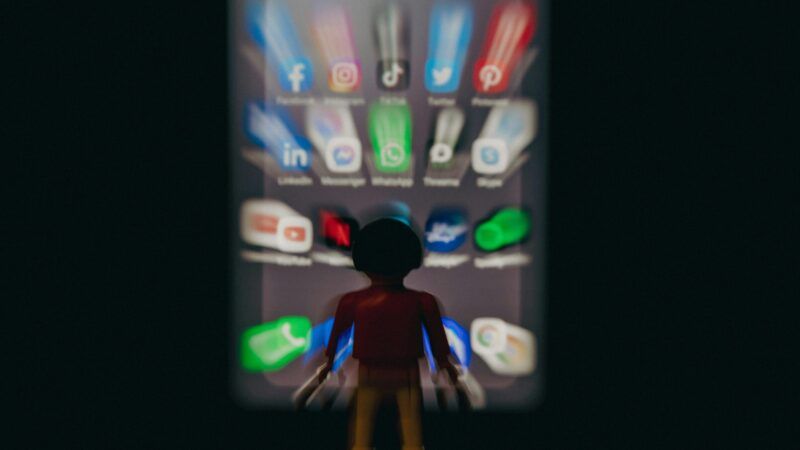Progressives Are Ditching Free Speech To Fight 'Disinformation'
From limits on liability protections for websites to attempts to regulate the internet like a public utility, these proposals will erode Americans' right to express themselves.

In my column last week, I detailed how GOP lawmakers in several Western states have jettisoned their usual concerns about free speech and have passed laws that require cellphone users to disable government-mandated filters before having open access to apps. It's a foolhardy endeavor done in the name of protecting The Children from obscenity, but at least these measures are narrow in scope (and mostly about posturing).
Meanwhile, progressives are hatching attacks on "disinformation" that threaten the foundations of the Constitution. Republicans share some responsibility, as they've backed various proposals targeting Big Tech out of pique about the censorship of conservative views. These ideas included limits on liability protections for posted content and plans to treat social media sites as public utilities.
Conservatives have already shown a willingness to insert government into speech considerations, so they are left flat-footed as leftists hatch plots to rejigger open debate. Whenever the Right plays footsie with big government, the Left then ups the ante—and conservatives end up wondering what happened. What is happening now is an effort to use legitimate concerns about internet distortions to squelch what we read and say.
Traditionally, Americans of all political stripes have accepted that—except for a few strictly limited circumstances—people can say whatever they choose. The nation's libel laws impose civil penalties on those who have engaged in defamatory speech, but those laws are narrowly tailored so the threat of lawsuits doesn't halt legitimate speech. This emanates from the First Amendment, which said Congress shall make "no law…abridging the freedom of speech, or of the press."
Such protections were applied to all governments, of course. The courts wrestle with gray areas (commercial and corporate speech, pornography, political advertising), but our nation thankfully has tilted heavily in the direction of upholding the broadest speech rights. This legal framework has been bolstered by a broad consensus among the citizenry that speech rights are sacrosanct. There always have been those people who want to police speech, but they have largely been outliers.
The internet and the information free for all that's followed have challenged that consensus. When I first got into the journalism business, Americans had limited access to information. We could read the daily newspaper, which didn't cover many issues and where editors served as gatekeepers. We could watch the network news at 6 p. or subscribe to magazines. There was no internet or cable news. Talk radio was in its infancy. Now anyone can post anything online and traditional news sources are struggling.
In the old days, I was routinely frustrated by the strict gatekeeping, as it was hard to find viewpoints that diverged from the accepted mainstream point of view. Now, we all have information overload, and it's hard to know what to believe. These days, Americans can't even agree on a basic set of facts before developing an opinion. Russian and Chinese bot farms churn out obvious disinformation. Outright falsehoods spread like wildfire and become accepted truths among large groups of Americans.
Concerns about internet conspiracies are not unwarranted, but efforts to address those problems—especially ones that rely on government—pose dangers to our rights as Americans. It's one thing to target a concerted online disinformation campaign from the Chinese Communist Party, but quite another to clamp down on "misinformation"—ideas and facts that one might find to be inaccurate or based on shoddy and biased reasoning.
In a 2021 Harvard Gazette article, Harvard Law School professor Martha Minow argued that the Federal Communications Commission should "withhold licenses, remove them, terminate them, for companies that are misleading people." In other words, federal bureaucrats would be tasked with determining what amounts to "misleading people" and then yank the licenses of broadcast news outlets that failed to conform to that standard.
Think about how that would play out. Many public health officials have railed against COVID-19 misinformation, and yet we later learned that the officials' solutions turned out to be wrong and that critics raised important points. That's how life works in a free society. Different people make different claims and then evidence unfolds, albeit in a messy and imprecise manner. How often have we found that official sources get things terribly wrong?
After detailing an example of spreading online misinformation, a New York Times article from 2020 argued that "increasingly, scholars of constitutional law, as well as social scientists, are beginning to question the way we have come to think about the First Amendment's guarantee of free speech. They think our formulations are simplistic—and especially inadequate for our era."
It's unclear how this new regimen will play out, but it's a good guess it will mean creepy government control over our discourse. Be prepared, as such "questioning" will only increase as a political movement at home with canceling verboten speech offers specific solutions. Conservatives may rue the day they ever toyed with speech limitations.
This column was first published in The Orange County Register.


Show Comments (115)